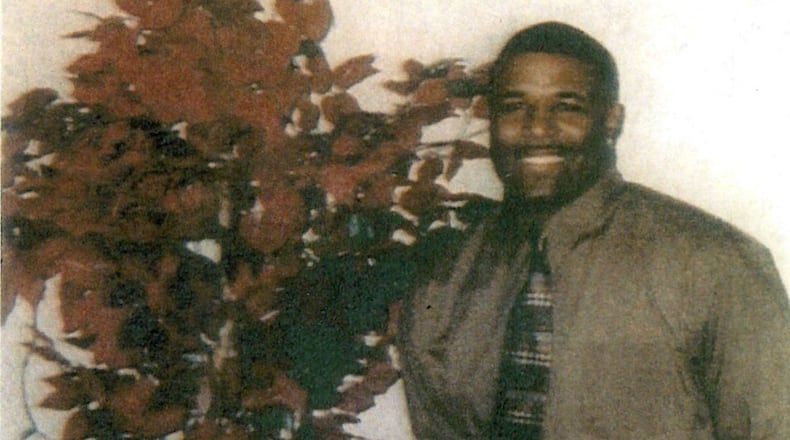The Georgia Supreme Court on Tuesday appeared poised to send a case in which a Gwinnett County man contends he was wrongly convicted of his infant’s murder back to a trial judge for a hearing on the merits of his claims.
A majority of the court’s justices indicated that Danyel Smith deserves a hearing to try to prove he is presenting new evidence that shows he should not have been convicted of killing his 2-month-old son and that his lawyers were diligent in bringing the evidence to the court’s attention. Those are two legal standards that must be met for Smith to win an extraordinary motion for new trial, which was filed in April 2021.
Smith is serving a life sentence after being convicted of the “shaken baby” murder of his son, Chandler, on May 6, 2002. Chandler’s limp body was rushed to the hospital after Smith drove his son to meet Chandler’s mother at a local WIC public assistance office. Chandler was taken off life support a week later.
An autopsy found that Chandler had a skull fracture above his left ear, wrist fractures, retinal hemorrhaging and a pool of blood between his brain and its outermost covering. At the 2003 trial, Medical Examiner Steve Dunton testified his findings were “classic and in some cases virtually exclusive for violent shaking.”
But Smith’s new lawyers from the Southern Center for Human Rights contend Chandler died of natural causes due to complications from his premature birth as well as seizures. They cite a sworn affidavit signed by Dr. Saadi Ghatan, an eminent pediatric neurologist at Mount Sinai Hospital in New York.
Working free of charge, Ghatan reviewed Chandler’s medical records and concluded the baby’s death “was not the result of parental abuse or mistreatment, nor was his death caused by anyone.” Ghatan, the director of pediatric neurosurgery, said advancements in medical diagnostics not available in 2002 show Chandler did not die from shaken baby syndrome.
Without holding an evidentiary hearing, Gwinnett Superior Court Judge Ronnie Bachelor dismissed the new trial motion. On Tuesday, the state high court heard Smith’s appeal of that ruling.
Smith’s lawyer, Mark Loudon-Brown, told the justices that when a neurologist testified for the state at trial, he said he thought Chandler died from being violently shaken and that he would be “happy if somebody can tell me something else.”
Loudon-Brown said evolving medical science now provides a different diagnosis and that the one presented at trial would never be given today.
Credit: Pete Corson
Credit: Pete Corson
During the oral arguments, the justices saved their most pointed questions for Assistant District Attorney Christopher Deneve.
When Deneve argued that the claims brought by Smith do not qualify as new evidence, several justices said that is something that must be decided at an evidentiary hearing before the trial judge.
“That’s an argument that can be made only at a hearing before the trier of fact to decide,” Justice Nels Peterson said.
“It may very well be a good argument,” said Chief Justice Michael Boggs. But he then asked, “How can a judge unilaterally, with that affidavit, deny a hearing?”
Justice Sarah Hawkins Warren told Deneve the state may have good arguments to counter Smith’s newly discovered evidence claims. But she then asked, “Why don’t you get to a hearing to have a trial judge figure that out, where you can cross-examine the expert and all over your theories can be clearly laid out and both sides can go through the adversarial process to determine whether it is new?”
About the Author
The Latest
Featured




